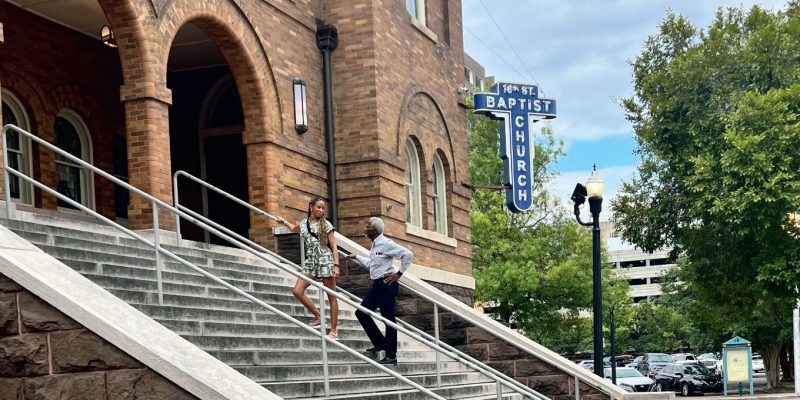Movies & TV
Shadow and Bone Star Jessie Mei Li Loves Fantasy Worlds as Much as You Do
British actress Jessie Mei Li has a message for Shadow and Bone fans: Prepare yourselves.
by : Patricia Karounos- Apr 23rd, 2021
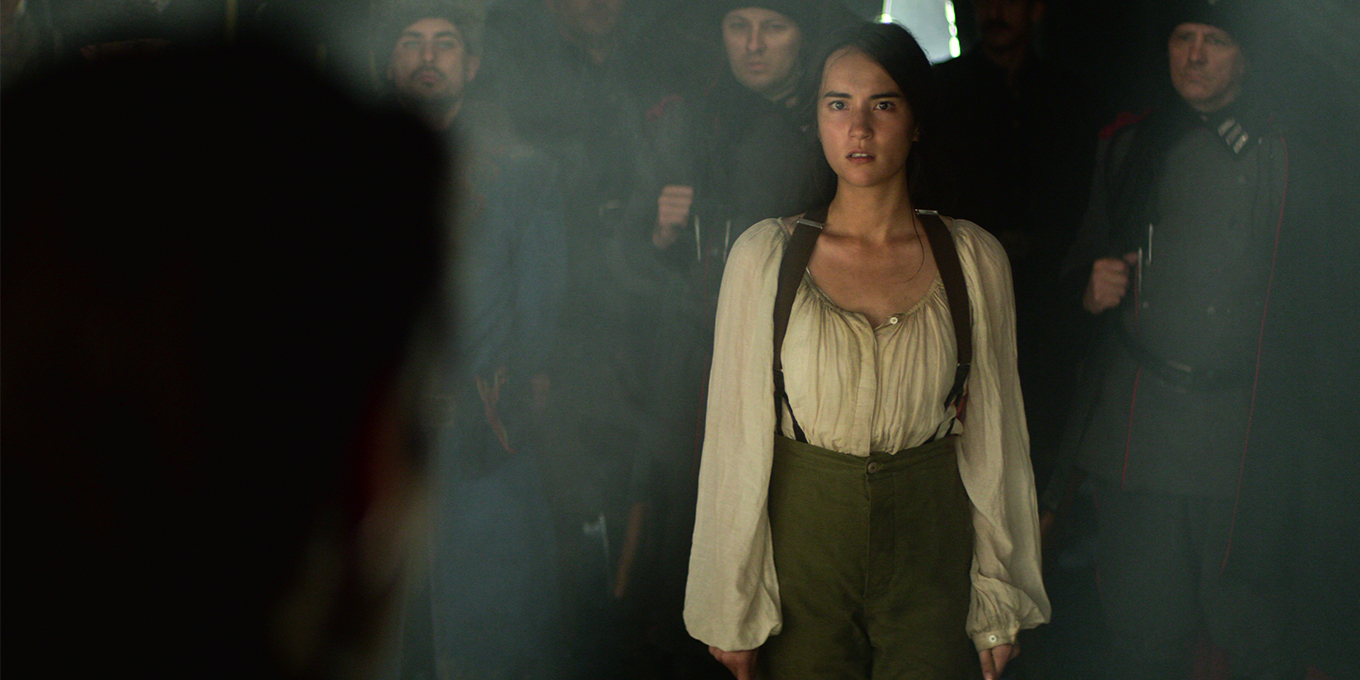
Netflix (David Apple)
Longtime readers of Leigh Bardugo’s Grishaverse books have been eagerly awaiting the on-screen version of the fantasy-adventure series, and now that the buzzy Netflix adaptation is here, star Li – a lover of the genre herself – knows fans have a lot of hope riding on it. “I hope that the series doesn’t completely destroy their lives,” the 25-year-old, who uses she/they pronouns, says, only half-joking. “I hope that they’ll find something new to love in [the story], or maybe a new character that they didn’t think much of [originally]. But they should prepare themselves for it to be different [from the books], and to not get all the answers right away.”
In Shadow and Bone, relative newcomer Li stars as Alina Starkov, an orphan and low-ranking soldier in a war-torn land who discovers she has an extraordinary power and is a member of the Grisha — a group of people with magical abilities to manipulate the elements. Quickly, she is swept up into a lavish world and begins training the ultra powerful General Kirigan (Ben Barnes). But as she learns to hone her own ability to summon light, Alina realizes that not everything is as it seems. We hopped onto Zoom with Li to chat about the show, which starts streaming on April 23.
Tell us about how you became involved in Shadow and Bone.
I was working on a play in London and I got a bunch of auditions the same week, and I thought “bloody hell.” But I remember looking at the breakdowns of each project and Shadow and Bone really popped out to me. It ticked some boxes — [I liked] that it was a fantasy series because I’m part of the Lord of the Rings generation, so I would’ve loved to do something with magic. It was also one of the only scripts looking specifically for a mixed-race character, which always intrigues me but can also be a bit worrying sometimes because you’re never really sure why.
I remember that I sat there on the train, reading up on Shadow and Bone – I had been a teaching assistant so I knew the books were quite popular – and went to my audition. I didn’t realize that they were doing this sort of international search [for Alina]. It was one of those auditions where I came out of it feeling very good, which almost made me feel bad. Most of the time I’ve got quite a laid back attitude to everything, and, specifically with auditions, because there’s only so much you can do. You go in and do your best, and that’s it, really. You can’t worry about it too much. But [after this audition], I was like, “Oh, I really liked that. Oh, I really hope I get it.” And I think I had three or four rounds of auditions before I finally got the part and was cast in May of 2019. We started filming that October, so it was a long time between getting cast and actually working. It was like the longest summer of my life.
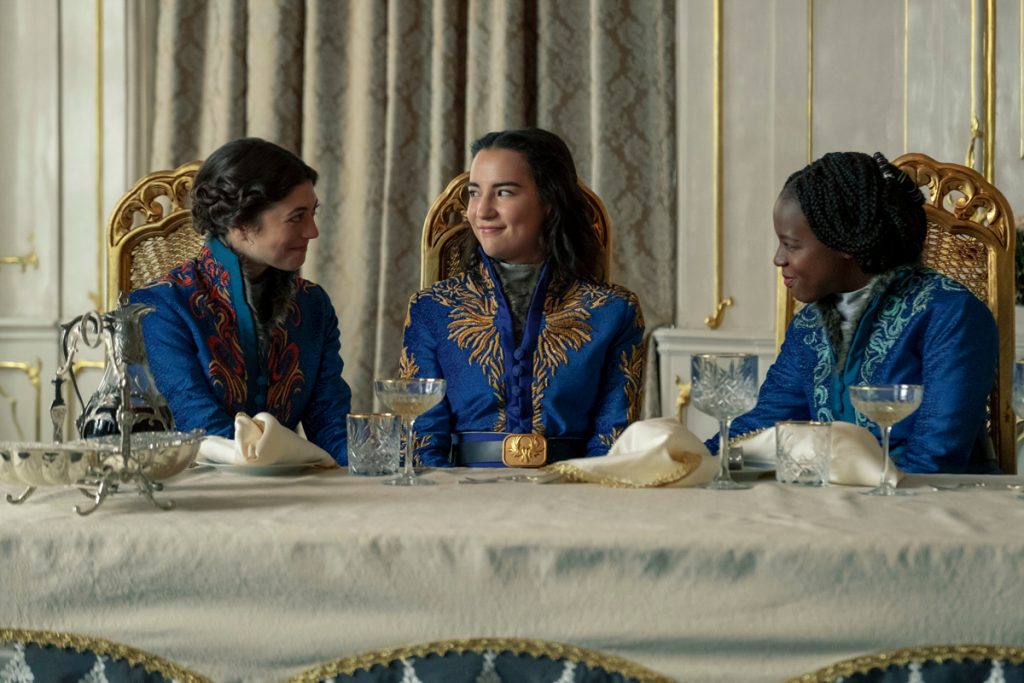 Netflix (David Apple)
Netflix (David Apple)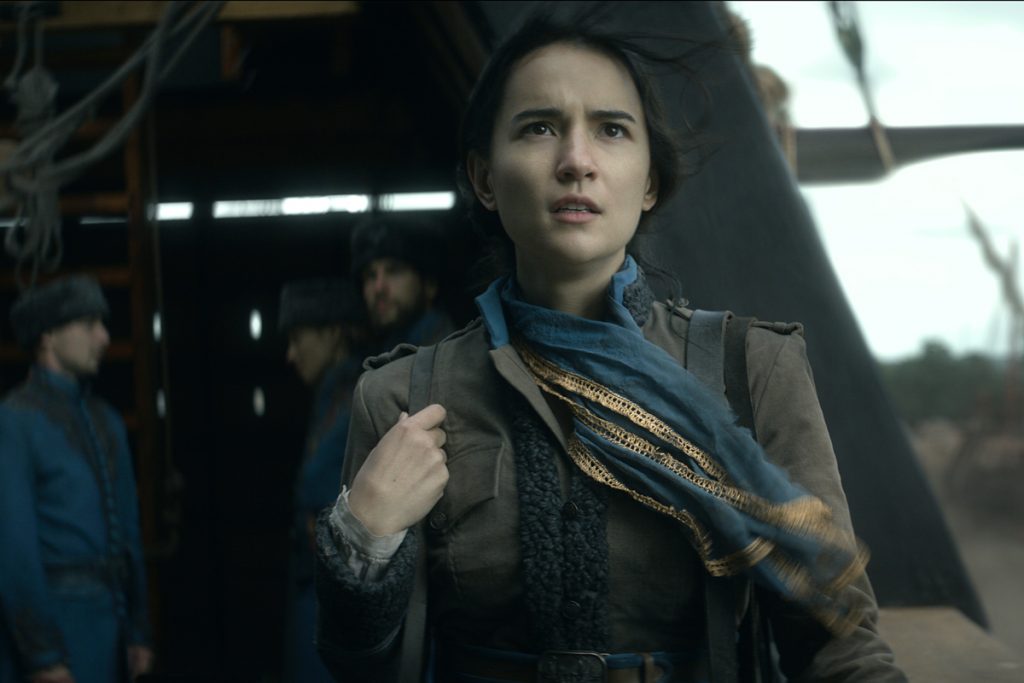 Netflix (David Apple)
Netflix (David Apple)What was it like for one of your first big on-screen roles to be the lead in this massive Netflix fantasy series, especially since you are such a fan of the genre?
Sorry, I’m going to go off on a tangent for a bit. I’ve been to auditions for a part where I maybe don’t feel like it’s very me, or for a show that I don’t feel like I would even watch. You can feel that and they can feel that. But sometimes, you go along into an audition where you are passionate about the content or the character or the world. It does come through, and the people who are watching your tape will see that. And this role was so perfect because I love dark fantasy and fairy tales — Pan’s Labyrinth was my favourite film growing up. And I loved [showrunner] Eric Heisserer’s previous work, like Arrival. So I went into the room knowing this was something I was really enthusiastic about and I wasn’t going to pretend that I wasn’t and try to be all cool. And so often in life, the things we really care about are actually the things we end up doing because people can give you the opportunity when they feel it’s in safe hands.
I brought a lot of enthusiasm with me — probably too much. [Laughs] But I think that’s one of the reasons that I did well, because I really did care — not just about getting the role, but I cared about the characters and I cared about the world. And when you’re making that world, that’s what you want. So it was cool. It kind of feels like in one of those bizarre ways — I’m going to regret saying this — but everything leads to one place sometimes. The little childhood me who was swishing swords around with my brother, all these experiences I’ve had, have led me to this point. Not in a mystical way, but you know what I mean. [Laughs]
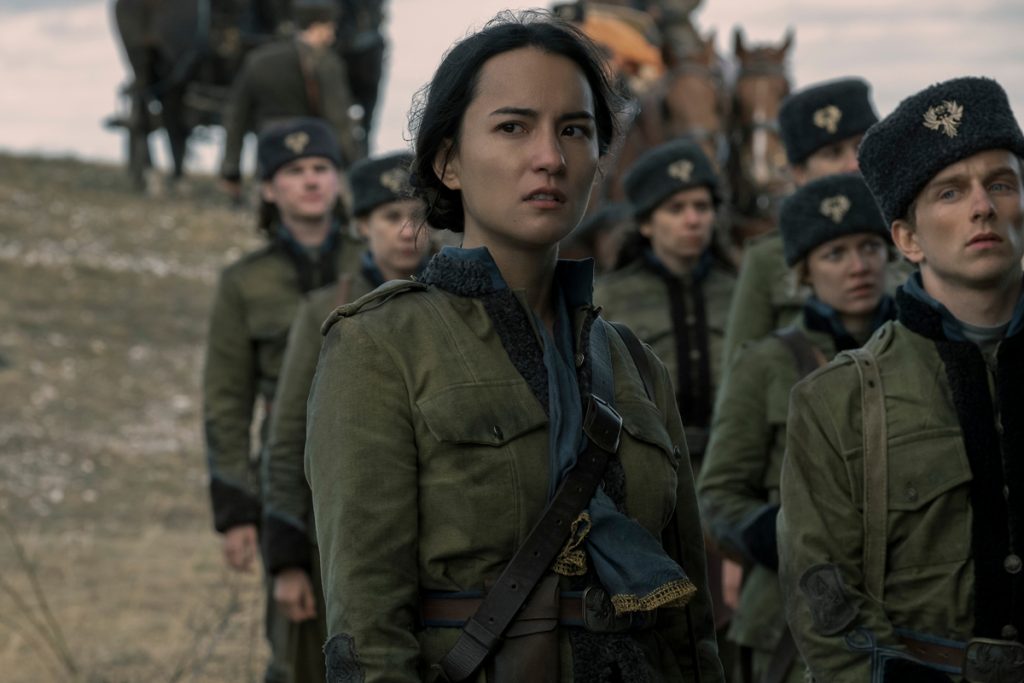 DAVID APPLEBY NETFLIX
DAVID APPLEBY NETFLIXLike a really grounded version of the “chosen one” trope.
I’m the chosen one of my own life!
What was it in the script and Alina that made you care so much?
While this is an interesting world and interesting conceptually, what I really liked about the scripts was that the characters were clear and important. This is a story about the characters, not just the overarching war — it’s driven by the wants and needs of the characters more than anything else. As someone who loves people, I love well-written characters with layers and complexities. Alina has that in bucketloads. My favourite moments as an actor are when an actor isn’t actually speaking, it’s when they are thinking something or feeling something. Those are the most engaging moments, and there’s so much of that for Alina because she has so much to react to, and she has such a gorgeous arc. From episode to episode, she grows and she changes, and that was exciting for me to remember what it was like to be growing up and not know who you are.
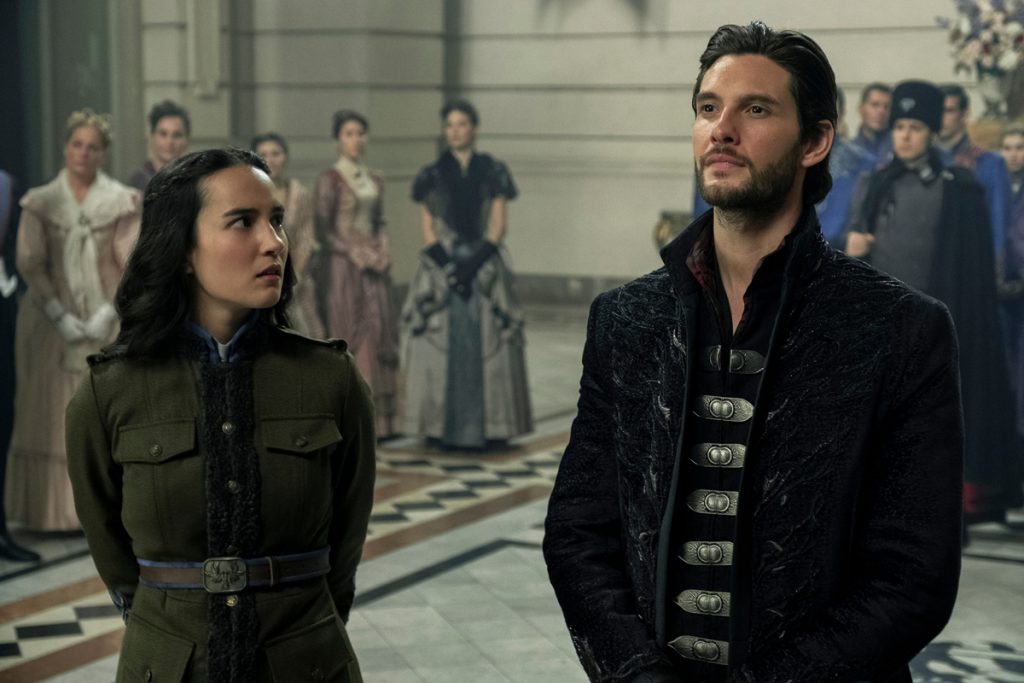 DAVID APPLEBY NETFLIX
DAVID APPLEBY NETFLIXYou mentioned that when scripts call for a mixed-race actor it’s both intriguing but can put you on your guard a bit. Can you talk to us about that?
Representation for Asian people [on-screen] has never really been very good. There are instances of yellow face way closer to the present day than many of us would like to acknowledge. Representation is important, and I can even see the benefits of colour-blind casting — in theatre, that’s the way it’s often done. But when it comes to being on-screen, especially big shows and mainstream films, if you’re going to make a choice to cast someone who isn’t white for a character who was white [Editor’s note: The character of Alina Starkov was written as white in the original books], you can’t just use their face. You’ve got to take the person and their experiences and bring it to the role in order for it to not just feel shoe-horned in. I think the term is identity-conscious casting — like, if you write a gay character, make sure [the audience] understands how that affects their lives. It [can’t] just be about ticking off boxes with stereotypical lines.
So yeah, I was a bit concerned. I was thinking, “Why have they done that?” But, luckily, that was all in the audition scenes. There were made up scenes between Alina and another character about Alina’s eyes, about her being an outsider. I saw that they were clearly not shying away from race, and I appreciated that because it means that people can watch this show — whether you’re biracial or not — and see racism [against Alina] and, because it’s a fantasy, see how silly it is. If you are putting out a message, it should be one that is beneficial to everyone and is relatable in a positive way. I’m glad that young people watching this show who have maybe had the same kind of struggles around identity and not knowing where they fit in can see this on-screen, and know it’s okay and know that you are you and that’s all you need to be. That’s a lovely message to pass on.
Read more:
What to Watch on Streaming This April
Kristen Stewart Is Princess Diana’s Double In New ‘Spencer’ Film Photo
Netflix’s New Documentary Seaspiracy Is As Eye-Opening As It Is Terrifying
Newsletter
Join our mailing list for the latest and biggest in fashion trends, beauty, culture and celebrity.
Read Next
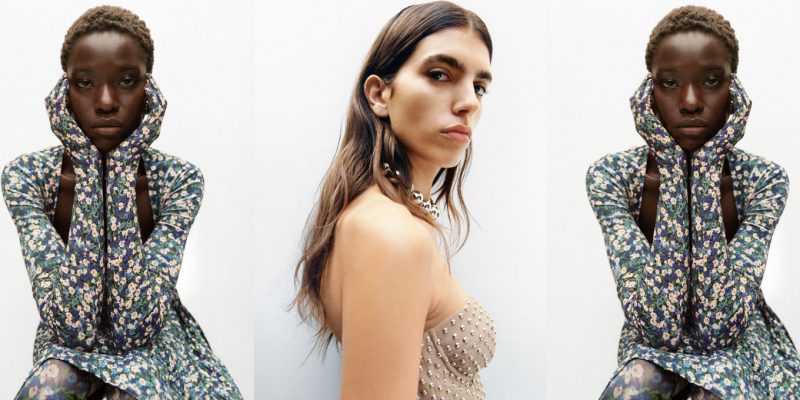
Fashion
H&M's Latest Designer Collab With Rokh Just Dropped (And It's So Good)
We chatted with the emerging designer about the collaboration, his favourite pieces and more.
by : Melissa Fejtek- Apr 18th, 2024
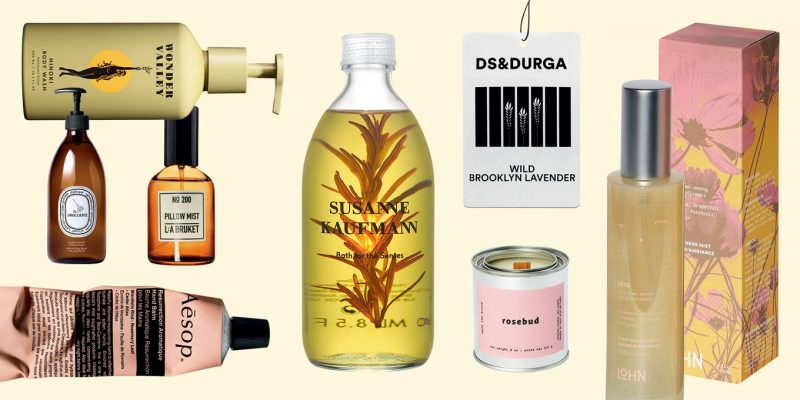
Beauty
10 Luxe Household Scents That Smell Amazing
Including Diptyque dishwashing liquid, Canadian-made room sprays and so much more.
by : Katherine Lalancette- Apr 17th, 2024

Beauty
Tested and Approved: Your New Hydrating Skincare BFF
This new product has all of your skin’s thirst-quenching needs covered.
by : ELLE Canada- Apr 17th, 2024

